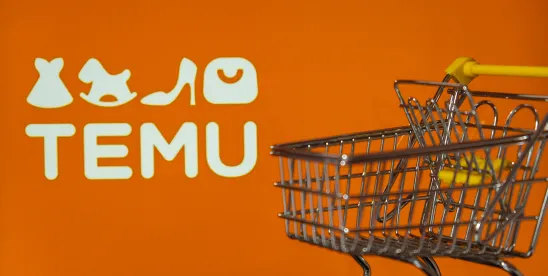On June 12, 2025, Nebraska Attorney General Michael T. Hilgers filed a lawsuit against Chinese e-commerce company Temu and its affiliates (PDD Holdings Inc. (formerly Pinduoduo Inc.) and Whaleco Inc.), alleging consumer protection violations ranging from malware concerns to deceptive trade practices.
In a press release, the Attorney General’s office states, “Temu unlawfully harvests data, including from kids, utilizes multiple deceptive practices to encourage purchases, allows infringement and counterfeits to thrive, and engages in deceptive marketing to greenwash its image.” The press release continues: “Once Nebraskans download the Temu app, they lose all control over their personal data, which may ultimately end up in the hands of a hostile foreign power.”
“Temu is putting Nebraskans’ privacy at risk and running a platform rife with deceptive listings, unlawful promotional practices, and products that rip off Nebraska brands and creations,” Hilgers said. “Our office will hold Temu accountable for its exploitation of Nebraska consumers, brands, and creators and fight hard for honesty and safety in the online marketplace.”
Nebraska’s Allegations
| 1. | Malware & Spyware Installation: The lawsuit alleges that Temu’s app automatically installs software to a user’s phone without consent and, in essence, functions as malware intended to exfiltrate sensitive user information without consent and to spy on user behavior. The lawsuit cites to interventions by the dominant app marketplaces as proof that Temu’s code is intentionally created to prevent third parties from uncovering their bad acts, with code designed to detect and evade forensic tools. |
| 2. | Privacy Violations: The lawsuit alleges that Temu’s app purports to be an e-commerce app but is instead designed to collect users’ personally identifiable information (PII) by misrepresenting, omitting, and deliberately concealing the app’s behavior. The lawsuit alleges that Temu does this to “prevent the user from knowing that said PII is subject to unfettered use by other individuals and an adversarial government,” (i.e., China). That the alleged privacy violations are executed through code, making it difficult or impossible for a layperson to discover, makes it that much more egregious and harmful to Nebraskans. |
| 3. | Intellectual Property Infringement: Temu is accused of hosting numerous products that infringe on copyrights and other intellectual property rights, potentially harming legitimate businesses and creators. According to the lawsuit, Temu frequently sells counterfeit, knock-off products in violation of the law. For example, the lawsuit alleges that Temu was reported for selling knockoffs and continued to do so even after the issue came to light. |
| 4. | Forced Labor: One of the lawsuit’s more serious accusations is that Temu uses forced labor in the production of its goods, which, if true, would be a human rights violation. The lawsuit cites a 2023 Los Angeles Times exposé of Temu, as well as U.S. congressional reports finding that Temu’s products are manufactured in China’s western province of Xinjiang, which is a region with known links to forced labor and detention camps. |
| 5. | Fake Reviews: The lawsuit alleges that Temu compensates users to write reviews, which are then skewed positive. It also alleges that Temu mischaracterizes reviews as “five star” when the language of the review is clearly negative. |
| 6. | Deceptive Representations as to Product Quality: The lawsuit asserts that, according to the Better Business Bureau, hundreds of consumers have complained in the past year alone, earning Temu a 2.1 out of 5 rating. The lawsuit references consumer complaints of Temu’s poor-quality goods and deceptive marketing practices, including the fact that the goods received often do not resemble the photos advertised, where such advertisements appear to be copied directly from other sellers on other consumer retail sites. Attorney General Hilgers also highlights the allegedly deceptive nature of Temu’s product listings, saying, “Product descriptions and pictures are often blatantly wrong. This is exacerbated by artificially skewed positive reviews paid for by Temu and Temu’s made-up ‘market price’ that makes the real price look great by fake comparison.” |
| 7. | False Reference Pricing: The lawsuit alleges that Temu engages in false reference pricing, inflating the full price of a product in order to trick consumers into thinking they are receiving a discount which never actually existed (also known as dark pattern advertising). |
| 8. | Unauthorized Charges: The lawsuit alleges that consumers have complained about receiving and being charged for goods they did not order, with Temu reusing consumer information provided at checkout for legitimate purchases. |
Foreign Government Data Misappropriation
The lawsuit asserts that Temu’s data collection practices are subject to Chinese law, requiring that Chinese companies provide user data to the government upon request. These laws include, but are not limited to, the National Security Law, Cybersecurity Law, and National Intelligence Law, which are all part of “an interrelated package of national security, cyberspace, and law enforcement legislation” that “are aimed at strengthening the legal basis for China’s security activities and requiring Chinese and foreign citizens, enterprises, and organizations to cooperate with them.”
The lawsuit further explains that under China’s Data Security law, even “a company holding data belonging to a US citizen stored on a Chinese server may not be able to legally hand over that data to the US government without proper approval.” More specifically, companies “are prohibited from providing any data stored in China, regardless of the data’s sensitivity level and whether or not the data was initially collected in China, to any foreign judicial or law enforcement agency without the prior approval of the relevant [Chinese Government] authorities.”
Finally, the lawsuit alleges that Chinese law enforcement and intelligence services interpret Chinese law as applying to any data, wherever it is stored, if China has a national security interest in that data. Chinese authorities have forced even refugees from China to hand over data stored outside of China to Chinese authorities under such circumstances, citing Chinese law.
Legal Actions and Remedies
The Attorney General is seeking to protect Nebraska consumers and hold Temu accountable for its alleged unlawful practices. The lawsuit requests civil penalties, restitution for affected consumers, and injunctions to prevent further deceptive practices.
Takeaways
This lawsuit underscores the importance of consumer protection and the need for transparency in business practices. As the case unfolds, it will be crucial to monitor its impact on both Temu and the broader e-commerce landscape.





 />i
/>i
